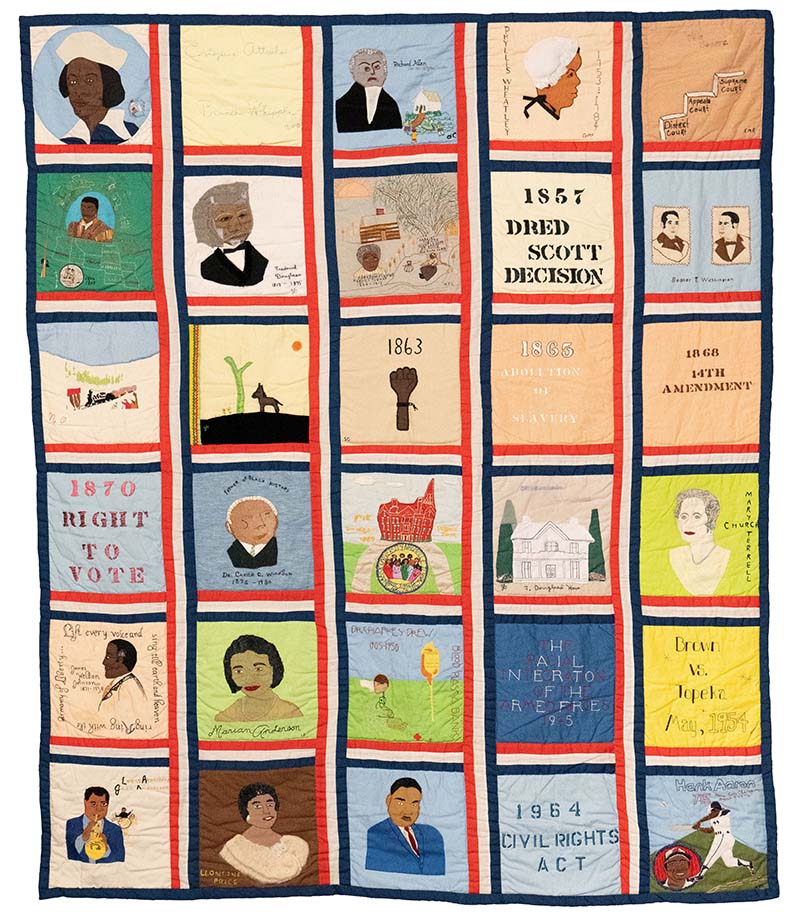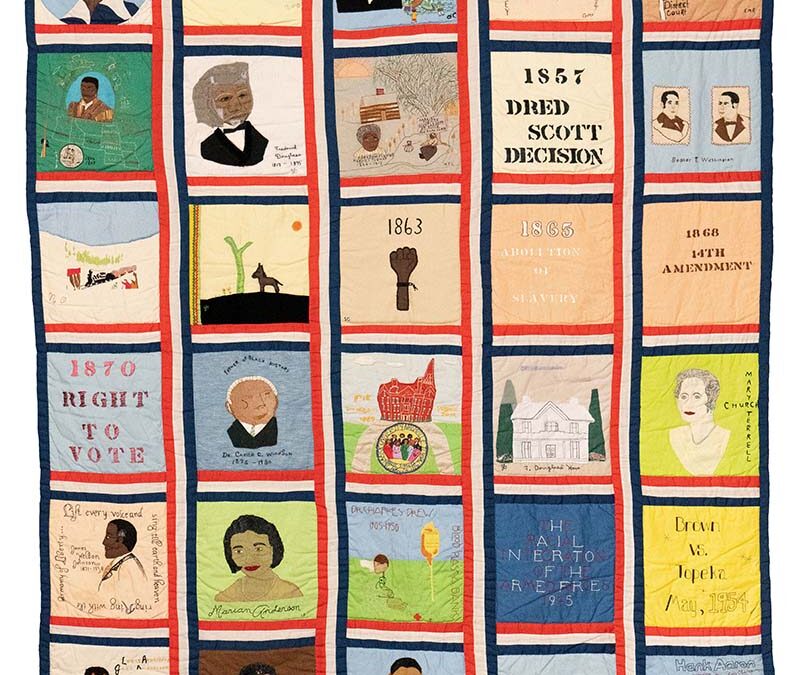
| Maker | Afro-American Heritage Bicentennial Commemorative Quilt Committee |
| Date of Creation | 1974–76 |
| Location | Portland, Oregon |
| Materials | Cotton, mixed fabric |
| Institution | Oregon Historical Society |
| Credit Line | Oregon Historical Society Museum, 77-57.1 |
| Accession Number | 77-57.1 |
| Photo Credit | Image courtesy of Portland Textile Month |
In 1974, a group of 15 Black women from Portland, OR, convened to sew a quilt honoring the heritage and contributions of the Black community in the history of the United States. Over the next two years, timed to coincide with the United States’ Bicentennial in 1976, these women sewed a quilt comprised of 30 fabric squares. Each square honors a Black individual or pivotal moment in history, including famed abolitionist Frederick Douglass; America’s first Black published poet, Phillis Wheatley; the Brown vs. [Board of Education of] Topeka decision, which outlawed racial segregation in education; and one square each for the 13th, 14th, and 15th Amendments, each conferring additional rights for Black citizens. Upon its completion, the quilt was displayed in numerous institutions, including Harvard University and the U.S. Department of State. It was exhibited at, and then donated to, the Oregon Historical Society by the Afro-American Heritage Bicentennial Commemorative Quilt Committee, which was comprised of all the quilters. The quilt is important for its celebration of Black history in America, its design, as well as for the civic contributions of its quilters in an era of racial strife. In 2020, the quilt was stolen from its display by demonstrators on the “Indigenous Peoples Day of Rage.” The quilt was found and returned, although stained and soiled. It was professionally conserved to near its original condition. The stained quilt backing was kept to document the quilt’s history in the modern era of the fight for equality.

